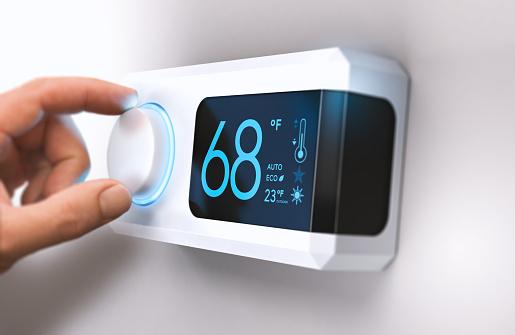
Life at the Richards’ house had gotten really busy since the twins’ arrival-and really noisy. At first, Trish and Adam were delighted with the action. They loved their twin baby siblings and each day, they snapped dozens of pictures of the tiny infants to post on their Facebook and Instagram pages and show to their friends. They were the proudest older siblings ever.
But after a few weeks, the constant crying and the baby paraphernalia scattered all over the house began getting on their nerves.
One day, Adam stumbled down to the kitchen for breakfast, bleary-eyed and grumpy.
“Those twins,” he groaned. “They kept me up all night!”
Mrs. Richards looked at him while rocking one of the twins. “They kept you up?” she laughed. “I didn’t see you getting up for the four o’clock feeding!”
“Or the two o’clock feeding, for that matter,” a tired-looking Mr. Richards chimed in. “Come to think of it, I didn’t see you at the six o’clock feeding either.”
Adam fell into a seat and flung his head down on the table. “Well, they woke me up. Again and again and again. Why do they need to cry every time they eat? And so loudly!”
“You’re complaining? I didn’t sleep a wink!” Trish announced, shuffling into the kitchen. “I heard them crying all night long!”
“I don’t know how I’m going to stay awake in class today,” Adam grumbled.
“Me neither,” Trish said. “Can’t me and Adam move to the basement?”
Adam brightened. “Yeah. Then we won’t hear those annoying babies all night!”
Right on cue, the baby in Mrs. Richards’ arms started howling. Adam and Trish covered their ears and winced. Mrs. Richards stuck the baby’s pacifier into her mouth and rocked her.
“You know, we’d need to finish fixing up the basement if you guys want to sleep there,” Mr. Richards said thoughtfully.
“Oh, can we? Can we please?” Trish and Adam begged.
Mr. and Mrs. Richards shared a long look.
“We’ll see,” Mrs. Richards said after a while. “It isn’t fair for the two of you to be woken up by the twins night after night.And the basement may be the perfect solution. But it’s going to cost a lot of money to finish it, so we need to figure out if we can swing it.”
“It would be nice to have a little more living space around here.” Mr. Richards said thoughtfully. “You know what? Today’s my last day of paternity leave-maybe Mom and I can work something out while you two are at school,” Mr. Richards said. “We’ll talk about this later.”
***
When Adam and Trish came home that afternoon, their parents were waiting for them at the kitchen table with big smiles on their faces.
“Guess what?” Mrs. Richards said. “We’re going to be fixing up the basement soon and you guys can both move down there!”
Adam and Trish whooped and shared high-fives.
“When can we move?”
“Can I paint my new room with chalkboard paint?”
“Can I have a sleepover next weekend?”
Mr. Richards held up his hands. “Hey, slow down there! Nothing’s happening just yet! We’ll discuss all the details when they become relevant.”
“What happened today, Mom? Dad?” Trish asked curiously.
“Yeah, did you guys win the lottery?” Adam grinned.
“Not quite,” said Mr. Richards. “We actually took a trip to the credit union today.”
“That’s right,” said Mrs. Richards. “And we opened up a HELOC.”
“A what?” Adam and Trish chorused.
“A HELOC,” Mr. Richards said calmly. “Or a home equity line of credit. It’s an open line of credit we now have against our house’s equity.”
“Can you say that again in English?” Adam asked.
Mrs. Richards laughed. “Sure. That means the credit union allows us to borrow money we need for renovations. This is called a line of credit, meaning we can withdraw the money we need, when we need it. And then we pay it back, just a little bit at a time.”
“And it’s against-what was that you said?” Trish wrinkled her eyebrows.
“Our home’s equity,” Mr. Richards explained. “That means the credit is secured by the value of our home. It’s serving as collateral, or a guarantee, that we won’t default on the loan and neglect to pay it back.”
Adam and Trish were quiet as they processed this information.
“Cool,” Trish said after a while. “Now we can afford to finish the basement.”
“Yeah!” Adam cheered. “And we get to sleep without the twins screaming their heads off right near our rooms!”
The baby monitor chose that moment to start crackling-and soon the sound of an infant’s howling shattered the calm in the kitchen.
Mr. Richards stood up to go fetch the crying baby from upstairs, but before he went, Adam and Trish stopped him.
“Thank you, Mom and Dad,” they said together. “This is awesome news!”
“Don’t thank us,” Mrs. Richards smiled. “Thank the credit union!”
Talking points:
- A HELOC is an open line of credit that allows the borrower to withdraw money as needed, and a HEL (home equity loan) is a loan that the borrower receives in one lump sum. Which do you think is the smarter choice when funding a home renovation?
- How is taking out a HELOC different than using a credit card?
- Why do you think some people make improvements on their home before they sell their house?










